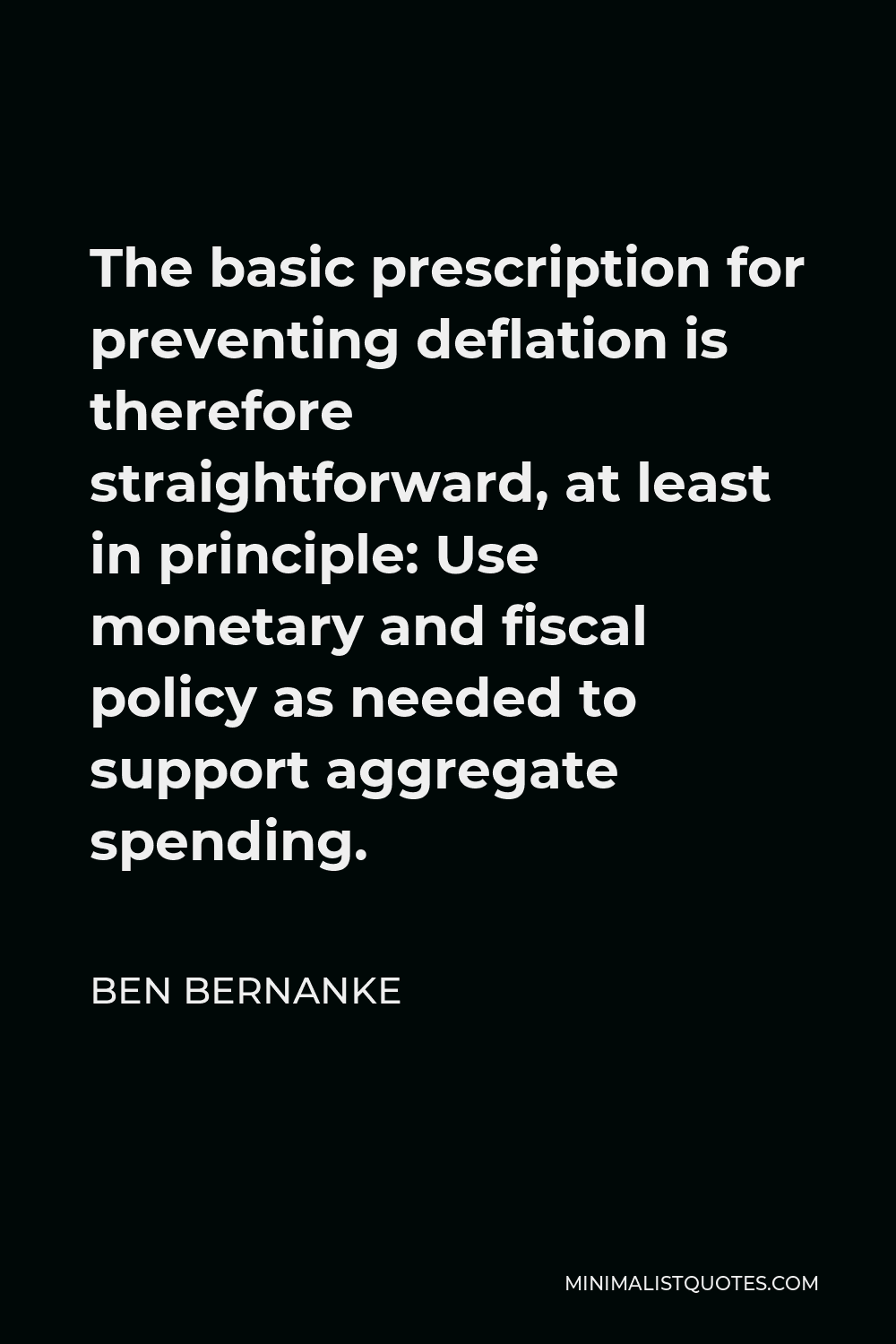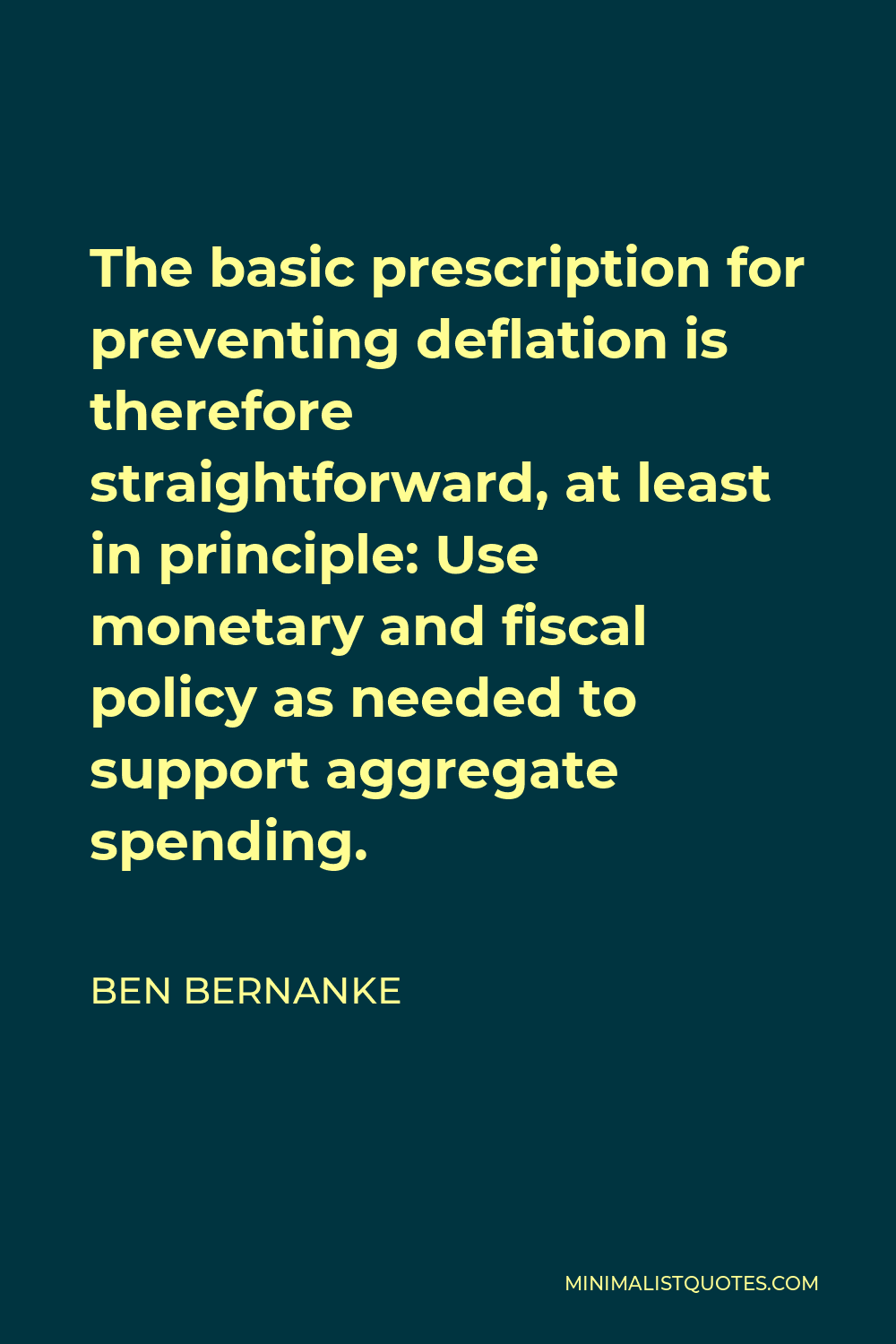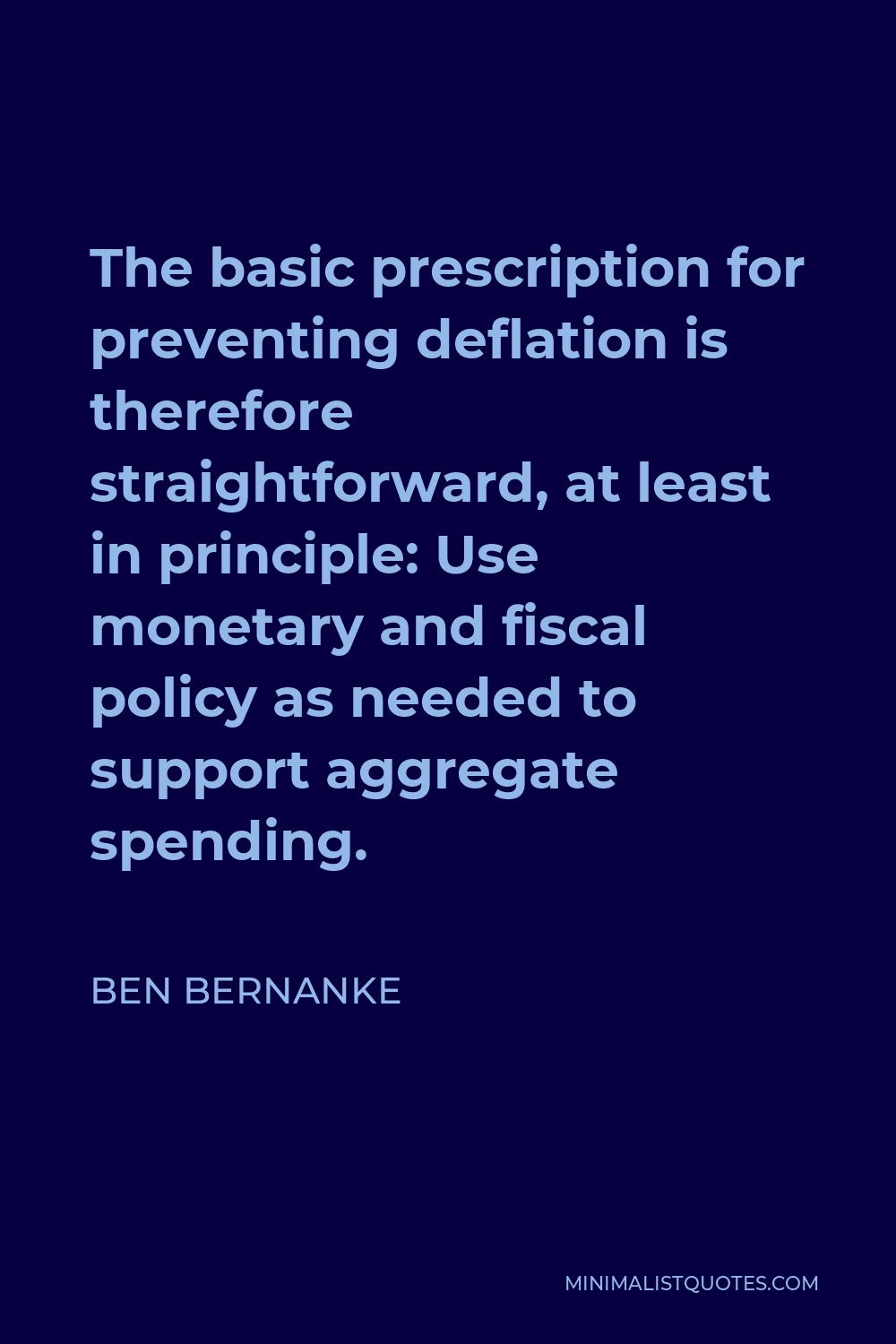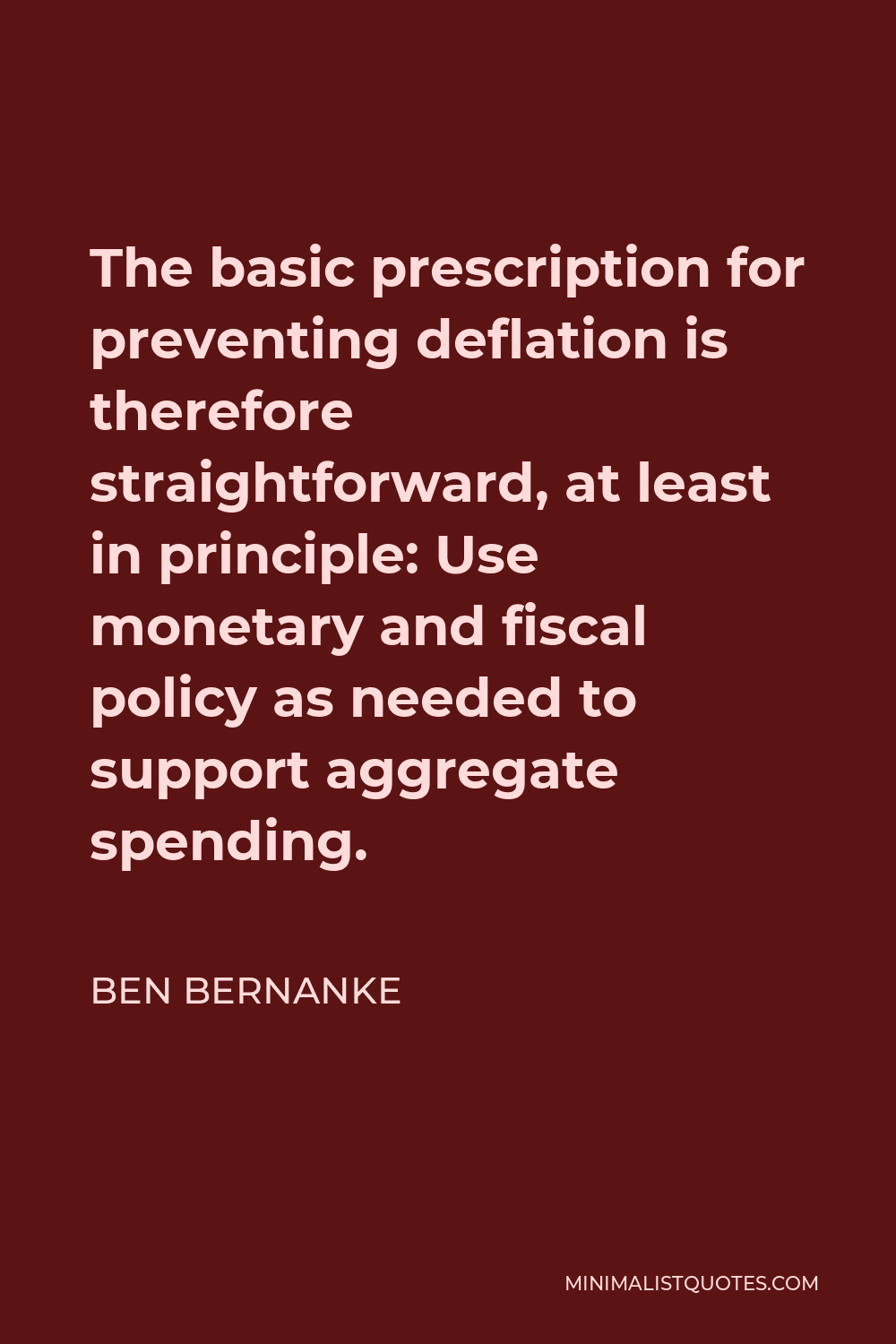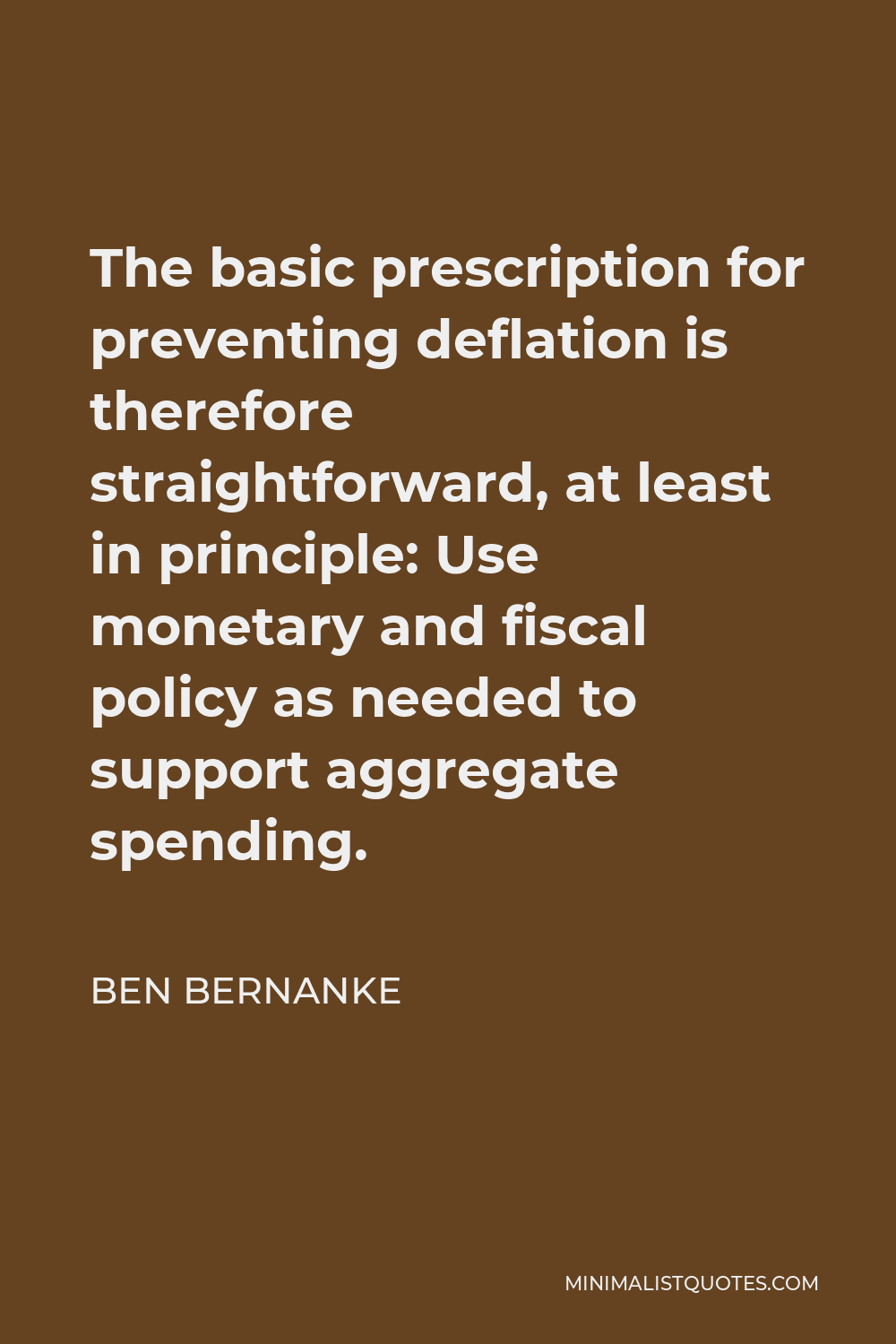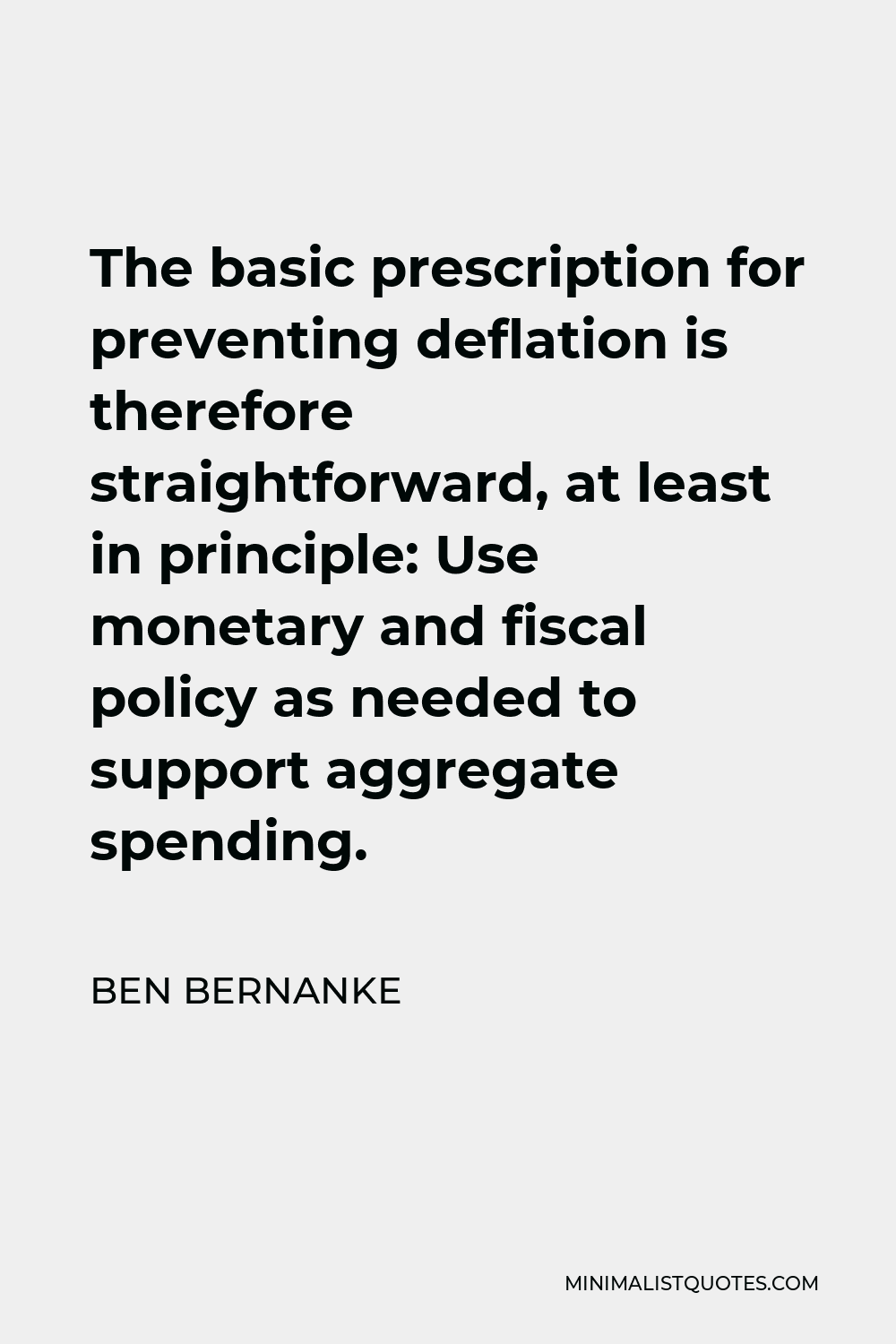One might as well try to perform brain surgery with a sledgehammer.
BEN BERNANKEThe basic prescription for preventing deflation is therefore straightforward, at least in principle: Use monetary and fiscal policy as needed to support aggregate spending.
More Ben Bernanke Quotes
-






-







If your uniform isn’t dirty, you haven’t been in the game.
BEN BERNANKE -






I don’t fully understand movements in the gold price.
BEN BERNANKE -





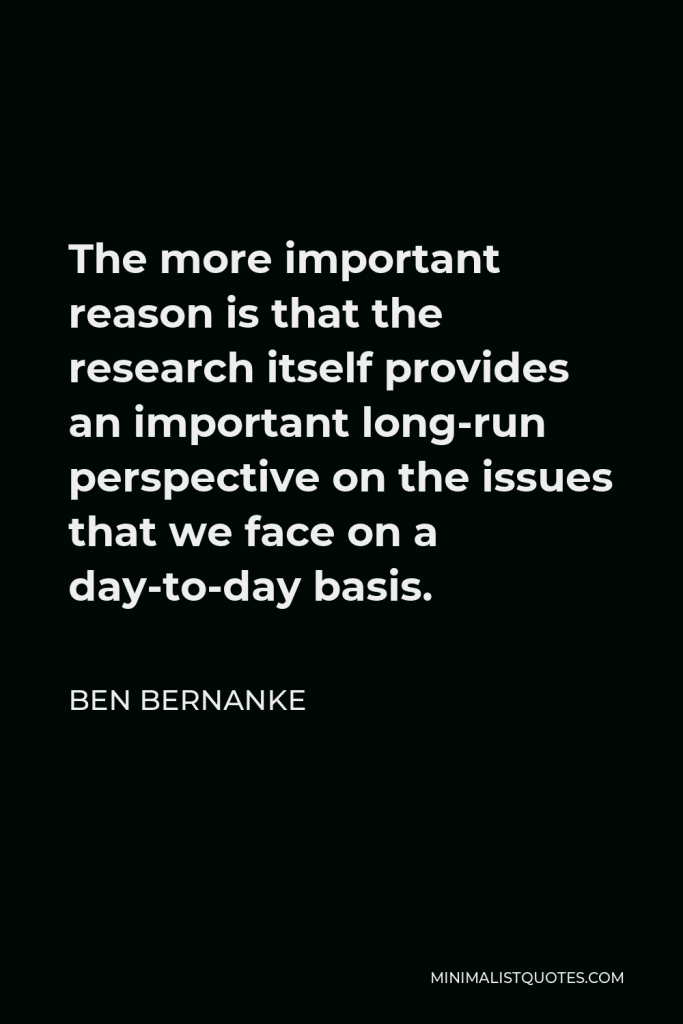

The more important reason is that the research itself provides an important long-run perspective on the issues that we face on a day-to-day basis.
BEN BERNANKE -





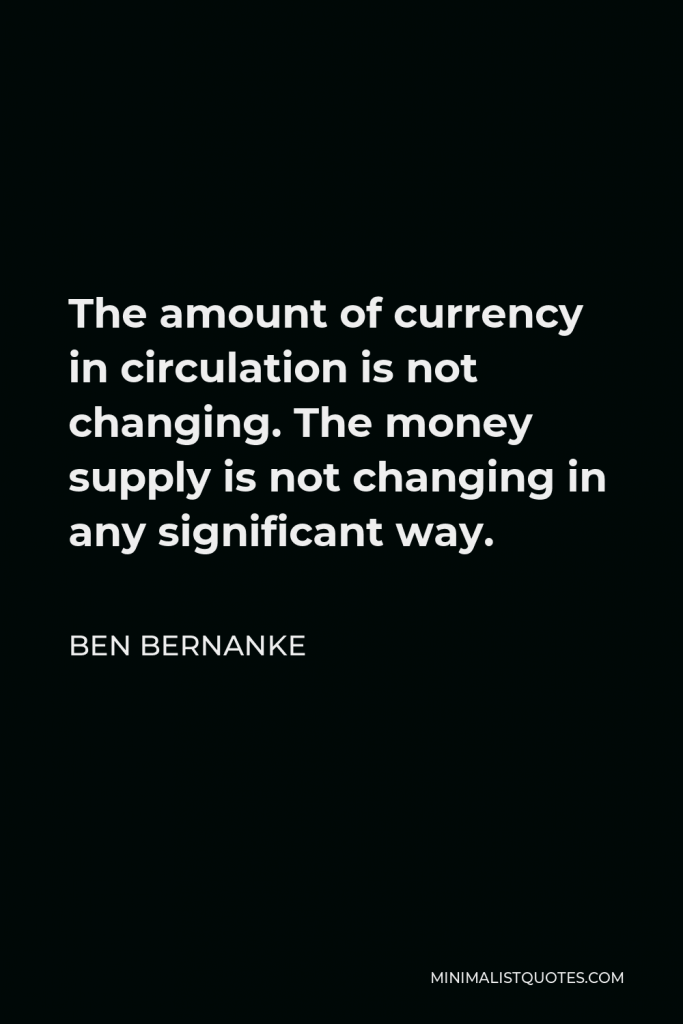

The amount of currency in circulation is not changing. The money supply is not changing in any significant way.
BEN BERNANKE -






Not all information is beneficial.
BEN BERNANKE -







The GSEs are adequately capitalized. They are in no danger of failing.
BEN BERNANKE -





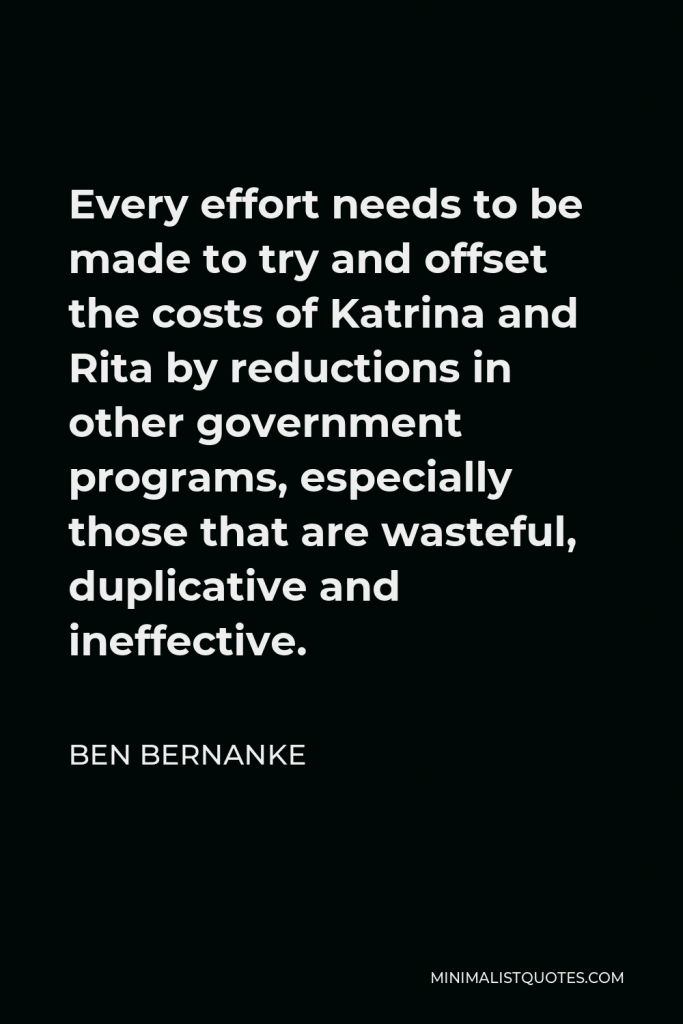

Every effort needs to be made to try and offset the costs of Katrina and Rita by reductions in other government programs, especially those that are wasteful, duplicative and ineffective.
BEN BERNANKE -





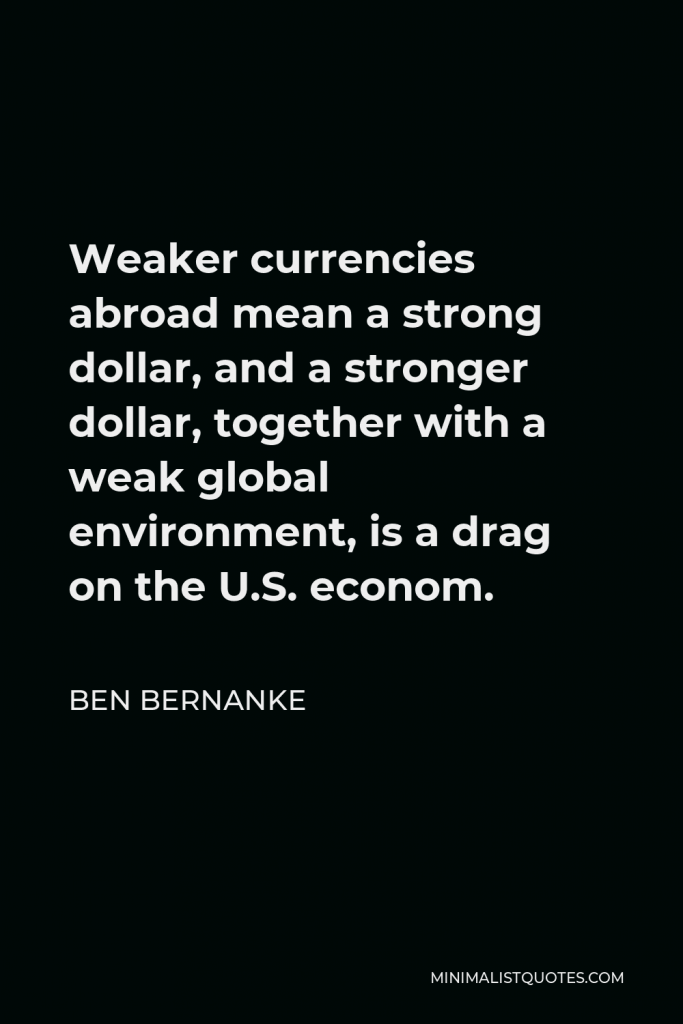

Weaker currencies abroad mean a strong dollar, and a stronger dollar, together with a weak global environment, is a drag on the U.S. econom.
BEN BERNANKE -







I don’t see much evidence of an equity bubble.
BEN BERNANKE -





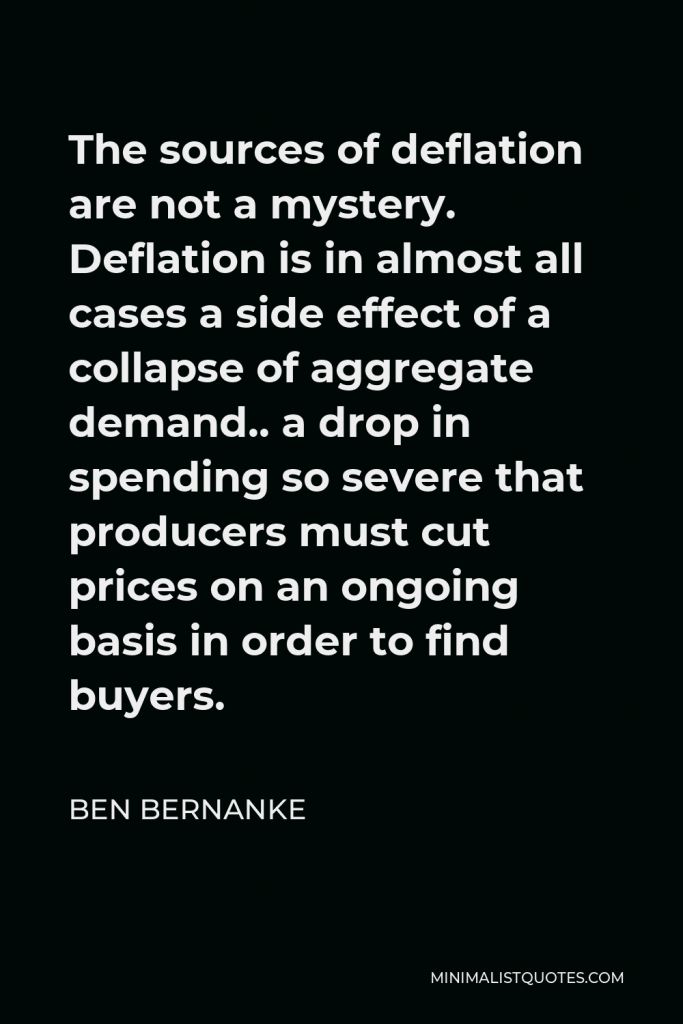

The sources of deflation are not a mystery. Deflation is in almost all cases a side effect of a collapse of aggregate demand.. a drop in spending so severe that producers must cut prices on an ongoing basis in order to find buyers.
BEN BERNANKE -





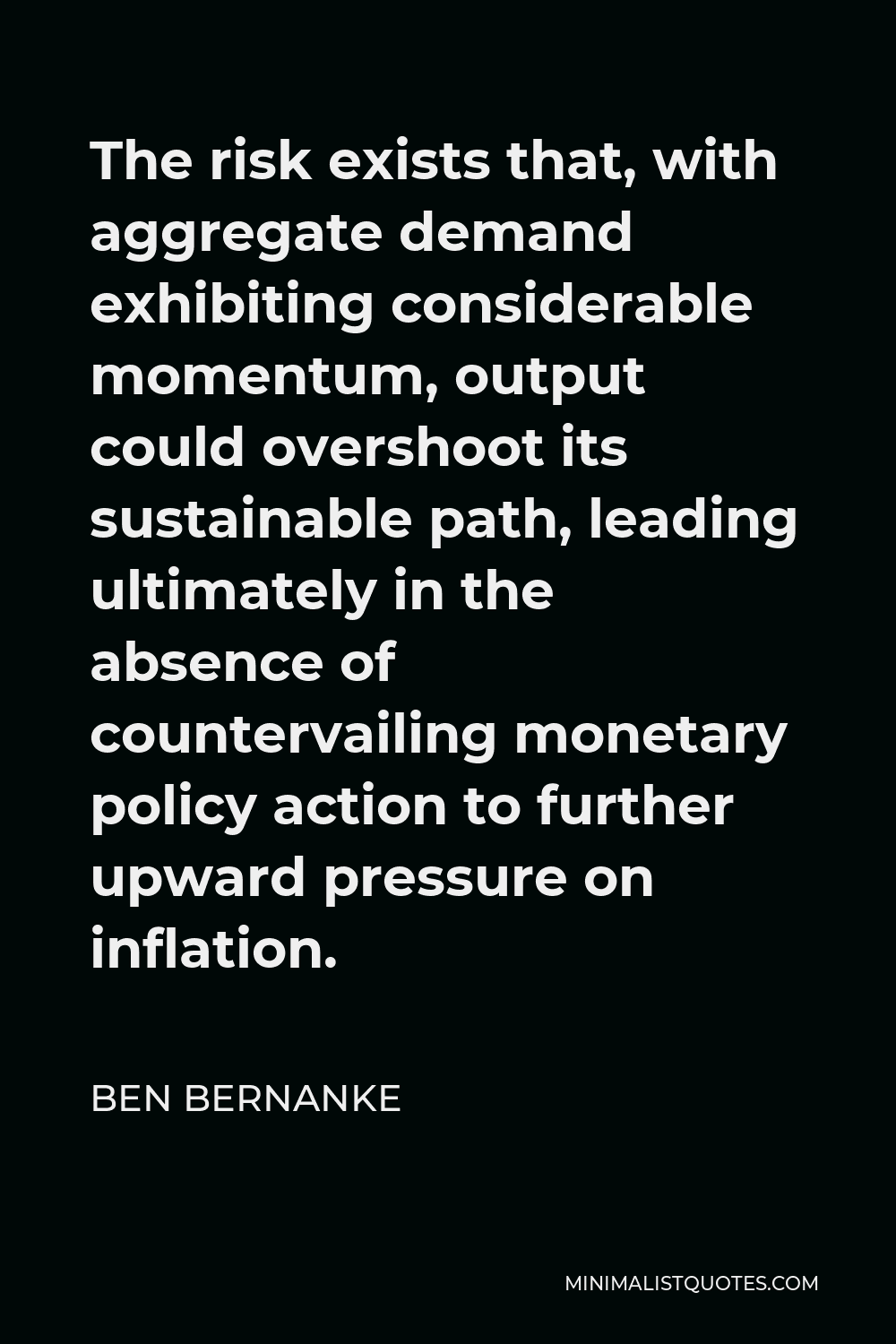
The risk exists that, with aggregate demand exhibiting considerable momentum, output could overshoot its sustainable path, leading ultimately in the absence of countervailing monetary policy action to further upward pressure on inflation.
BEN BERNANKE -





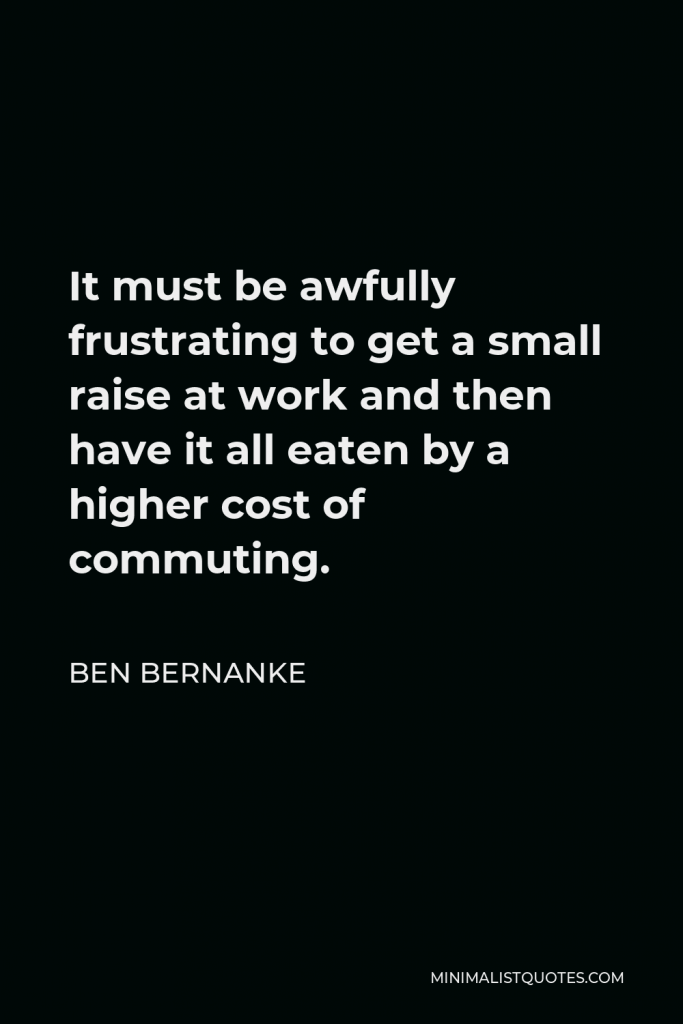

It must be awfully frustrating to get a small raise at work and then have it all eaten by a higher cost of commuting.
BEN BERNANKE -





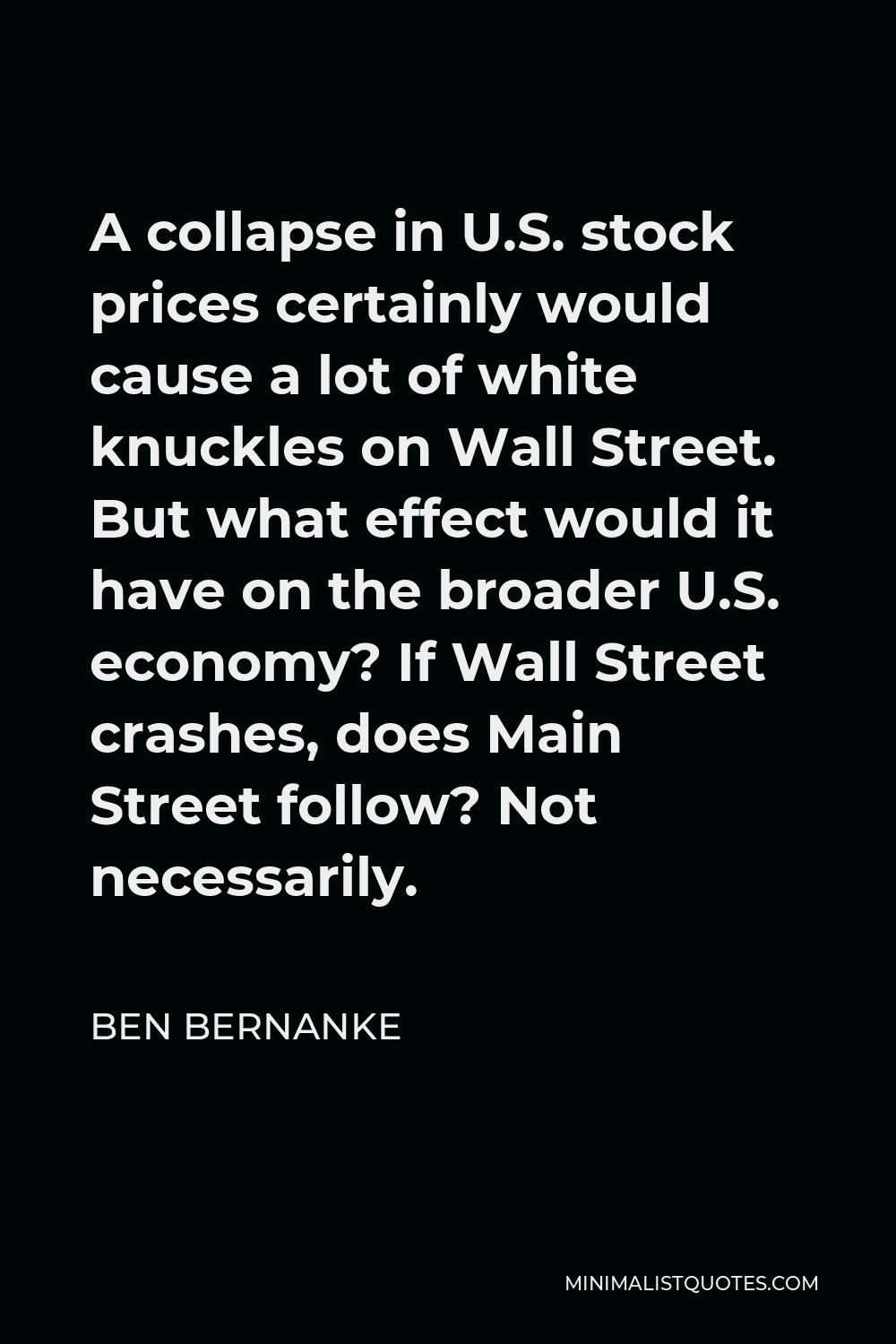
A collapse in U.S. stock prices certainly would cause a lot of white knuckles on Wall Street. But what effect would it have on the broader U.S. economy? If Wall Street crashes, does Main Street follow? Not necessarily.
BEN BERNANKE -





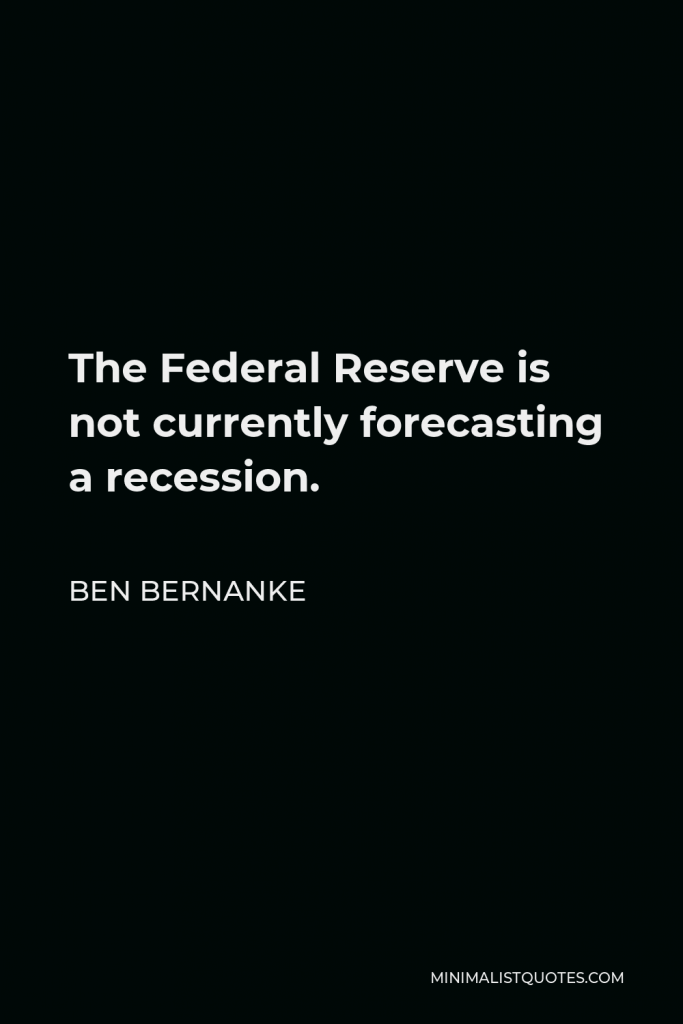

The Federal Reserve is not currently forecasting a recession.
BEN BERNANKE -







Life is amazingly unpredictable; any 22-year-old who thinks they know where they will be in 10 years, much less in 30, is simply lacking imagination.
BEN BERNANKE
